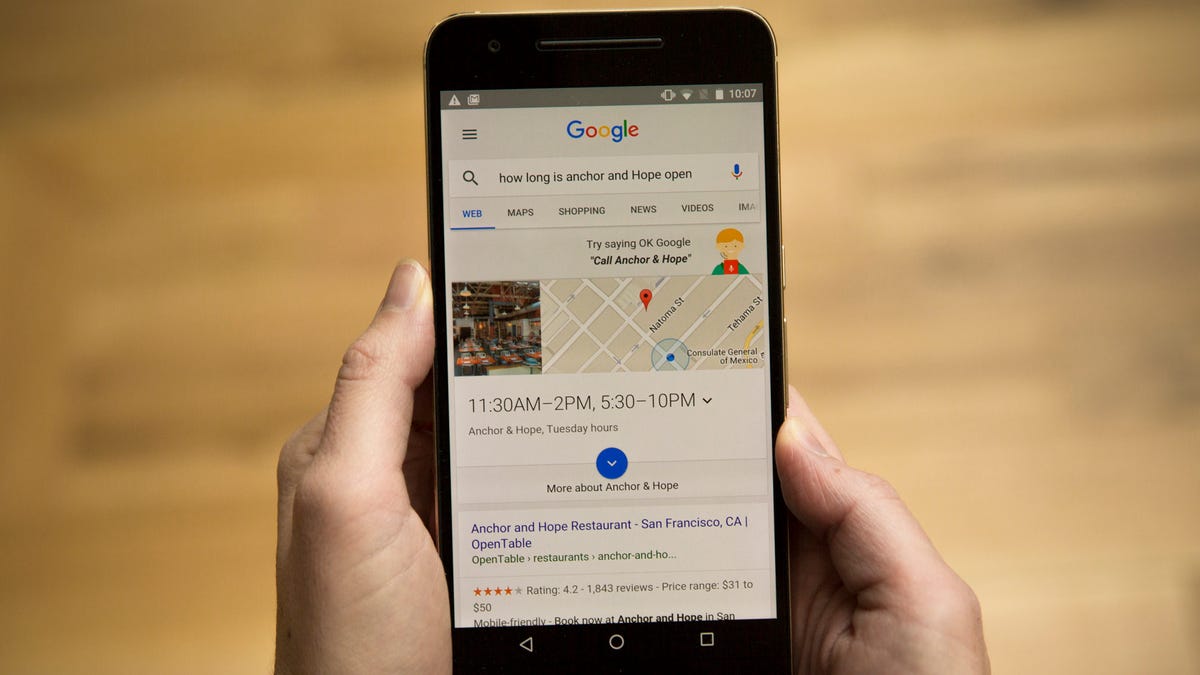Google's spruced-up digital assistant wants to chat you up
The search giant says it's working to make its digital assistant more capable of two-way conversation.

"OK, Google, let's get to know each other a little better."
The search giant said on Wednesday it planned to increase the usefulness of its digital assistant, known as "OK Google" or Google Now, in part by improving its ability to engage in two-way conversation.
At the company's annual developers conference, CEO Sundar Pichai outlined a vision in which the digital assistant would be more valuable for users and help Google create deeper connections to its audience.
Pichai sees the digital platform, simply dubbed "Google assistant," making decisions about what information it should display based on what the user asks. For example, the assistant would alter a list of local movie times if the user wants to bring a child to show kid-appropriate films. The assistant could also buy the tickets.
"We truly want to take the next step in being more assistive for our users," Pichai said in a presentation at the I/O developer conference.
So far, Google's digital assistant has worked as a voice-controlled version of the company's core search services, allowing people using Android smartphones or a Google app to ask specific questions, look up directions or check the weather.
More on Google I/O 2016
With voice queries now making up 20 percent of questions to Google on its mobile app and Android in the US, the company hopes to get people talking to Google a lot more.
Google's attempt comes as Apple, Amazon and Microsoft all offer their own increasingly intelligent digital assistants, which are each working to better predict and understand their users. Additionally, Facebook is working on its own artificial intelligence software and chatbots that can answer users' questions.
The search giant said it plans to add its digital assistant to many more devices, so people can use it at home, at work or in the car. That could help Google's powerful search capabilities expand to areas beyond Web browsers and smartphones.
Using machine learning and artificial intelligence, the Google assistant will be able to improve for individual users, learning their patterns and preferences. That could essentially create a personalized Google for each user, Pichai said.
--CNET's Richard Nieva and Sean Hollister contributed to this story.

